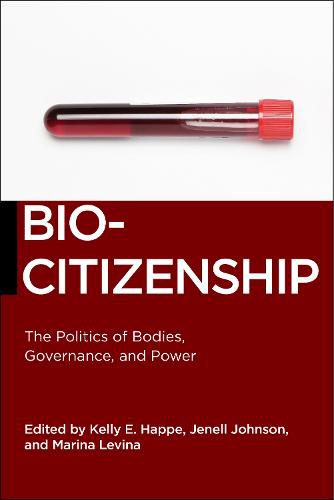Readings Newsletter
Become a Readings Member to make your shopping experience even easier.
Sign in or sign up for free!
You’re not far away from qualifying for FREE standard shipping within Australia
You’ve qualified for FREE standard shipping within Australia
The cart is loading…






A groundbreaking exploration of biocitizenship
Citizenship has a long, complex relationship with the body. In recent years, developments in biomedicine and biotechnology, as well as a number of political initiatives, grassroots efforts, and public policies have given rise to new ways in which bodies shape the idea and practices of citizenship, or what has been called biocitizenship. This book, the first collection of essays on the topic of biocitizenship, aims to examine biocitizenship as a mode of political action and expand readers’ understanding of biopolitics.
Organized into four distinct sections covering topics including AIDS, drug testing on the mentally ill, and force-feeding prisoners, Biocitizenship delves deep into the relationship between private and public identity, politics, and power. Composed of pieces by leading scholars from a wide variety of disciplines, Biocitizenship offers a clear and comprehensive discussion on biocitizenship, biopolitics, and groups that may be affected by this ever-growing dialogue. Authors address issues familiar to biopolitics scholarship such as gender, sexuality, class, race, and immigration, but also consider unique objects of study, such as incubators, dead bodies, and corporations.
Biocitizenship seeks to question who may count as a biological citizen and for what reasons, an essential topic in an age in which the body and its health provide the conditions necessary for political recognition and agency.
$9.00 standard shipping within Australia
FREE standard shipping within Australia for orders over $100.00
Express & International shipping calculated at checkout
A groundbreaking exploration of biocitizenship
Citizenship has a long, complex relationship with the body. In recent years, developments in biomedicine and biotechnology, as well as a number of political initiatives, grassroots efforts, and public policies have given rise to new ways in which bodies shape the idea and practices of citizenship, or what has been called biocitizenship. This book, the first collection of essays on the topic of biocitizenship, aims to examine biocitizenship as a mode of political action and expand readers’ understanding of biopolitics.
Organized into four distinct sections covering topics including AIDS, drug testing on the mentally ill, and force-feeding prisoners, Biocitizenship delves deep into the relationship between private and public identity, politics, and power. Composed of pieces by leading scholars from a wide variety of disciplines, Biocitizenship offers a clear and comprehensive discussion on biocitizenship, biopolitics, and groups that may be affected by this ever-growing dialogue. Authors address issues familiar to biopolitics scholarship such as gender, sexuality, class, race, and immigration, but also consider unique objects of study, such as incubators, dead bodies, and corporations.
Biocitizenship seeks to question who may count as a biological citizen and for what reasons, an essential topic in an age in which the body and its health provide the conditions necessary for political recognition and agency.